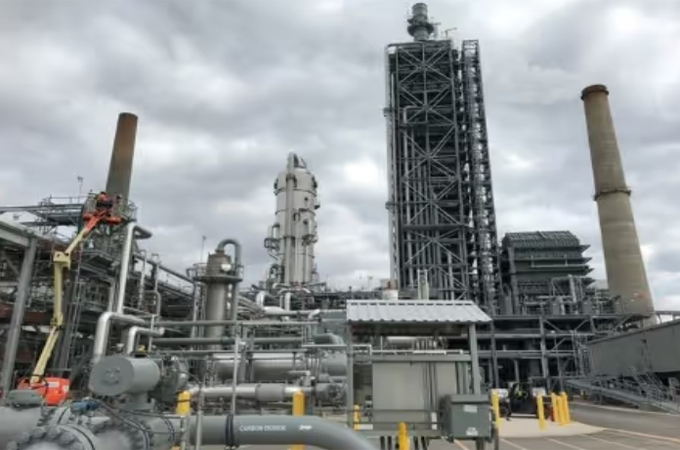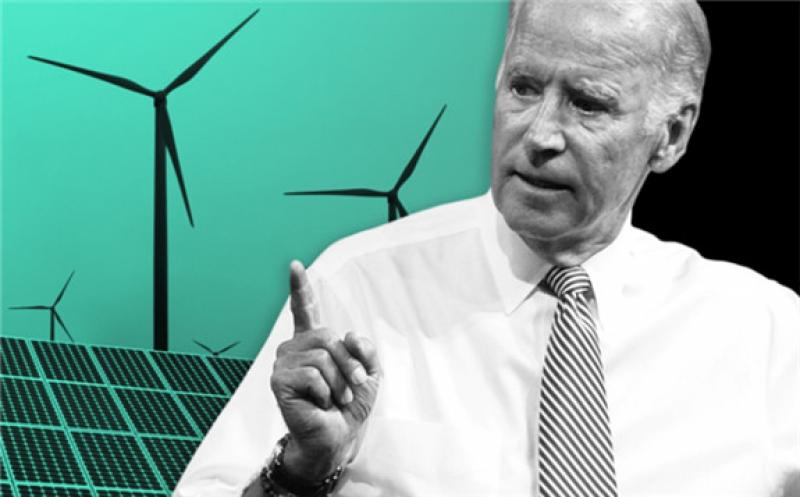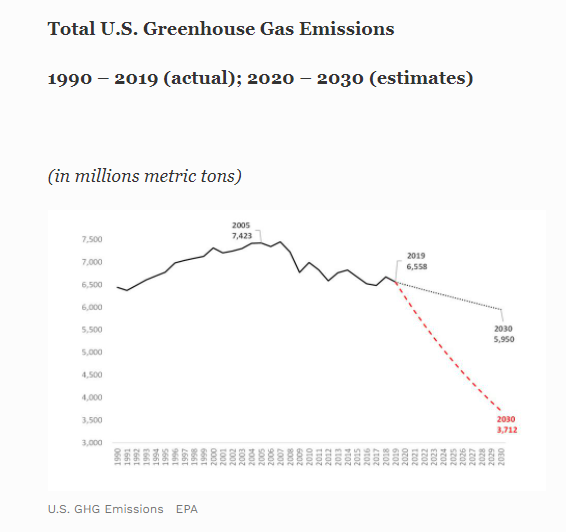Representatives of the natural gas industry have a message for the Biden administration: Don’t throw us under the electric-powered bus.
 FILE – This Feb. 8, 2018, file photo shows signs that mark the route of the Atlantic Coast Pipeline in Deerfield, Va. The developers of the now-canceled Atlantic Coast Pipeline have laid out plans for how they want to go about unwinding the work that was done for the multistate natural gas project and restoring disturbed land. In a filing with federal regulators made public Tuesday, Jan. 5, 2021, the pipeline company proposed an approximately 24-month timeline for efforts across West Virginia, Virginia and North Carolina. (AP Photo/Steve Helber, File)
FILE – This Feb. 8, 2018, file photo shows signs that mark the route of the Atlantic Coast Pipeline in Deerfield, Va. The developers of the now-canceled Atlantic Coast Pipeline have laid out plans for how they want to go about unwinding the work that was done for the multistate natural gas project and restoring disturbed land. In a filing with federal regulators made public Tuesday, Jan. 5, 2021, the pipeline company proposed an approximately 24-month timeline for efforts across West Virginia, Virginia and North Carolina. (AP Photo/Steve Helber, File)
In a letter to President Biden released Wednesday, leaders of Pennsylvania’s energy sector and its allies said Biden needs natural gas to help him reach his climate emissions goals while keeping the U.S. economy growing.
“The workers and local small businesses driving the economy and helping to build America back are essential to a low-carbon future which cannot be achieved without an affordable and reliable source of clean energy,” they wrote. “Natural gas is, and should continue to be, the key to our country’s environmental progress.”
At a virtual climate summit hosted by the White House, Biden announced his commitment to reducing U.S. emissions to at least 50% below 2005 levels by 2030. It’s a goal some energy analysts believe is unrealistic.
“The Biden-Harris administration’s reported second-round commitment under the unratified Paris climate treaty is preposterous and irresponsible,” said Myron Ebell, director of the Center for Energy and Environment at the Competitive Enterprise Institute. “Trying to cut greenhouse gas emissions by fifty percent below 2005 levels by 2030 would cause energy prices to skyrocket, make blackouts a common occurrence, and lead to widespread energy poverty.”
One of the participants in the climate summit is Russia’s Vladimir Putin, whose nation is amassing troops on the Ukrainian border and has been subject to new U.S. sanctions in the past two weeks.
During a press event on Wednesday, Pennsylvania energy leaders noted Putin is one of the world leaders most likely to benefit if America restricts its own energy production.
“The most important point I want to celebrate today in anticipation of Earth Day with my colleagues is that American global energy leadership has really been expanded by Pennsylvania and our natural gas production,” said David Taylor of the Pennsylvania Manufacturers Association. “Not only are we exporting LNG, which is cleaner burning than other fuels, but we’re helping our allies to disentangle themselves (from) energy relationships with Russia, with OPEC, and this gives America more leverage on the international stage.”
Tom Melcher of the Pittsburgh Regional Building and Construction Trades Council, on the other hand, focused his message for Biden on the domestic front: American jobs.
“I represent over 62,000 tradesmen, and our partnership working in the gas industry over the last 10 years has been phenomenal for our members,” Melcher said. “They’re great, sustainable jobs. They are clean jobs. And they’re safe jobs.
“The demand for skilled labor today is higher now than it has ever been since I’ve been in the business, and I’ve been in the business for 40 years,” Melcher added.
Several participants touted the decline in U.S. emissions over the past decade due in part to converting coal and oil power generation to natural gas. “Natural gas is responsible for roughly 40 percent of power generation in the United States,” said David Callahan, president of the Marcellus Shale Coalition. “And since 2005, carbon dioxide emissions have dropped 33 percent in the country.”
Energy companies have geared up production of what many see as a “bridge fuel” to the green energy future. The five largest producers — ExxonMobil, Chevron, Royal Dutch Shell, Total and BP — have increased the share of natural gas from 39% of total output in 2007 to 44% in 2019.
As for Biden’s goal of cutting U.S. carbon emissions by half, Callahan put it simply: “I don’t see how the United States could meet this ambitious goal without natural gas underpinning the economy and underpinning the power grid. Natural gas is the ultimate partner for renewables.”






